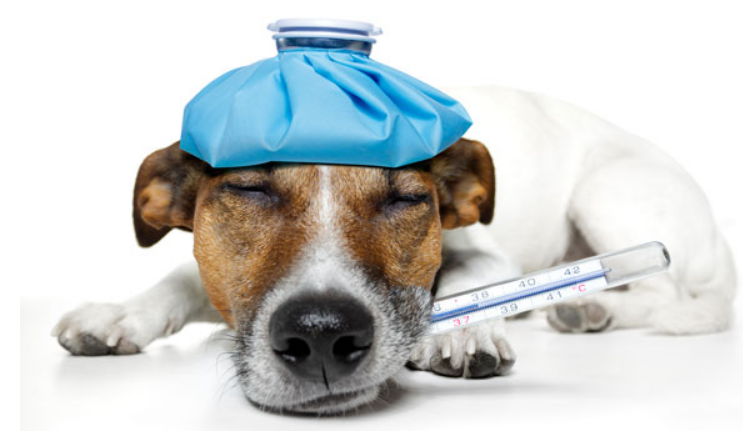See the seriousness of hepatitis in dogs
 |
| See the seriousness of hepatitis in dogs |
Hepatitis, an unwellness of the liver that's seen in many animals, as well as humans, is caused by an infection. Canine liver disease is caused by the virus selected CAV-1 that is seen solely in dogs. Humans and alternative animals aren't in danger to contract the liver disease from the CAV-1 virus.
Like several viruses, CAV-1 initial localizes and replicates within the bodily fluid nodes and spreads into the blood from there. Once within the blood, CAV-1 attacks many organs, most notably the liver, eyes, and kidneys. though {hepatitis|infectious unwellness|liver disease} could be a terribly serious disease, not all cases of CAV-1 infection cause it and not all square measure serious. Some dogs show few or no symptoms once being infected. Some, on the opposite hand, particularly young puppies, become seriously unwell.
Once a dog is infected, there's no treatment that may destroy the CAV-1 virus.
there's no cure. There is, however, a really smart immunizing agent that may incline to puppies once they begin their series of inoculations. The immunizing agent has greatly reduced incidents of canine liver disease within us and Western Europe.
Not all cases of liver disease square measure caused by the CAV-1 virus. referred to as upset or periportal liver disease, these cases of liver disease square measure of unknown origin and occur in dogs that square measure 5 or six years previous in most cases.
Symptoms of each CAV-1 liver disease and liver disease of unknown origin will embody inborn reflex, diarrhea, weight loss, jaundice, depression, and weakness. Since there's no cure, a vet will solely treat the symptoms to the simplest of his or her ability. Antibiotics square measure usually is given to forestall additional infections.
In most cases, once a dog contracts CAV-1 the symptoms will be treated to stay the dog snug till the virus passes. Once that happens a dog is typically proof against the unwellness for the remainder of its life. Survival rates square measure high for CAV-1 iatrogenic liver disease with death typically occurring solely in puppies.
Some specific breeds (most notably pinscher Pinschers and bound terriers) will develop and suffer from chronic liver disease. there's no cure for the unwellness and these animals can have it for the remainder of their lives.
The infectious canine liver disease could be a terribly serious condition caused by an extremely infectious virus that affects the liver. It will develop extraordinarily quickly in puppies and dogs.
What is infectious canine hepatitis?
The infectious canine liver disease could be a terribly serious condition worldwide, caused by an extremely infectious virus that affects the liver.
It will develop extraordinarily quickly in puppies and dogs. Mortality rates in dogs with the canine liver disease vary from 10- half-hour and is often highest in terribly young dogs.
What square measures the symptoms of infectious canine hepatitis?
A puppy or dog with infectious canine liver disease can show a spread of various symptoms. you ought to continuously look for:
- Fever
- Lethargy
- Diarrhea
- Vomiting
- An enlarged liver
- Abdominal pain
A puppy or dog with an additional severe case of infectious canine liver disease may additionally have subsequent symptoms:
- Bruising of the skin
- Red dots on the skin
- Swollen and enlarged bodily fluid nodes
What causes infectious canine hepatitis?
Infectious canine liver disease is transmitted through the blood, nasal discharge, saliva, urine, or fecal matter of infected dogs.
It's a virus that may survive for a protracted time in canine communities and is troublesome to get rid of because it is proof against lipide solvents like ether, yet on acid and solution.
Can my puppy be insusceptible against infectious canine hepatitis?
The infectious canine liver disease will be prevented with the correct vaccination. It's thus therefore necessary that they get the required vaccines at the correct age.
In most instances, puppies typically begin a vaccination program at the age of six to eight weeks, with the infectious canine liver disease vaccination given at between seven to 9 weeks.
Your puppy is going to be given their initial booster for infectious canine liver disease at 11-13 weeks. solely once this initial booster can your puppy be protected.
How do I do know if my puppy wants the vaccine?
The vaccines provided to puppies square measure either necessary or suggested. The immunizing agent for infectious canine liver disease is one in all the necessary vaccines so it can continuously incline to your puppy as a part of the vaccination program place in situ by your vet.
Will the vaccination continuously cowl my dog for infectious canine hepatitis?
The first injections administered for infectious canine liver disease won't cowl them for good. it's necessary to form positive that your puppy is given booster injections throughout their life.
Your puppy is going to be needed to possess another booster at fifteen months so annually moving forward to confirm they're insusceptible against the infection.
Speak to your vet as they'll be able to assist you to opt for a vaccination program best suited to the wants of your puppy, counting on wherever they will be paid time and therefore the activities they will be doing.
What ought to I do if I believe my puppy is laid low with infectious canine hepatitis?
If your puppy presents any of the symptoms of infectious canine liver disease it is vital to contact a vet instantly. they'll perform a variety of blood tests, protein tests, and immuno-fluorescence scanning to see whether or not your puppy is infected and suggest the simplest course of treatment.
Vaccinating your puppy against infectious canine liver disease and alternative conditions is one in all the foremost necessary preventative measures you'll desire to make sure the health of your new puppy throughout their life. If you're unsure concerning this immunizing agent or have any queries with reference to the vaccinations your puppy wants, speak to your vet

Comments: 0
Post a Comment